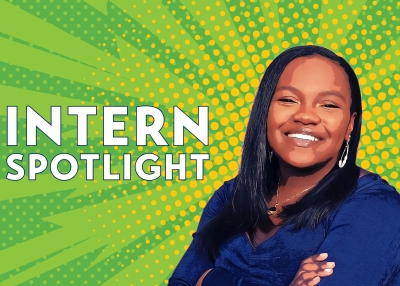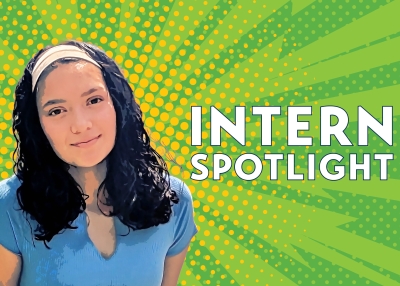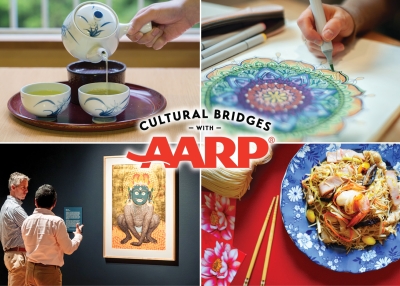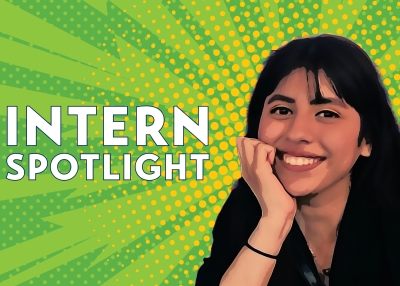Psychologist Addresses Stress and Anxiety during COVID-19, Provides Strategies for Coping and Connecting
Asia Society at Home
Learn More
HOUSTON, May 15, 2020 — Asia Society Texas Center welcomed Dr. Lynn Bufka, Senior Director of Practice Research and Policy at the American Psychological Association, to discuss the impacts of the coronavirus pandemic on society’s collective mental health. In conversation with Syeda Hasan, mental health reporter at KERA News, Dr. Bufka touched on the causes of increased stress and anxiety, the disparate impacts on different groups, and how we can both strengthen our emotional resiliency and help support others.
What is behind our increased stress and anxiety?
Hasan said that many people may be experiencing a significant amount of stress and anxiety in response to the pandemic, sharing results from a recent Kaiser Family Foundation poll revealing approximately half of Americans indicated that the coronavirus crisis is harming their mental health. Additionally, she noted that emergency hotlines have reported an increase in call volumes, and online therapy companies have seen a jump in demand. She asked Dr. Bufka to first address the difference between stress and anxiety, and explain what is causing these heightened emotions.
Dr. Bufka explained that while stress and anxiety are related, she defines stress as those times when we feel overwhelmed by the demands being placed on us — such as caring for children at home or how to get food safely amid COVID-19 fears. She described anxiety as our concern over future events or outcomes of things. In her view, we are likely feeling a mix of stress and anxiety over the pandemic. She noted that emotions exist for a reason and that experiencing the full range has benefits, as stress and anxiety alert us to plan and prepare to take care of ourselves. The problem, she said, arises when we are overwhelmed and our stress and anxiety interfere with our ability to do what is necessary to cope.
Dr. Bufka went on to recognize that there is much uncertainty related to the pandemic that can cause people to feel distressed and overwhelmed. This can be around the virus itself — where it is, how it will impact us or loved ones, whether there is adequate healthcare response — as well as in the disruptions to our day-to-day lives, with concerns over employment, finances, or childcare. She explained that uncertainties can increase our stress, as we have to cope with disruptions to our routines while expending mental energy to make decisions and adapt to a new way of life. She added that one factor is how rapidly the circumstances around COVID-19 have changed and how widespread its effects are, with no clear end in sight.
So how do we cope?
Given that many of the questions may cause people's anxiety are unanswerable, Hasan asked Dr. Bufka on what we can do to cope. Dr. Bufka responded that we can address stress and anxiety on three levels: physiology, emotions, and thoughts.
For the first, she recommended that we slow down our breathing — not merely deep breathing, she clarified, but complete breathing: breathing in for a count of four, holding for four, and then breathing out for a count of four. When our bodies are relaxed, our brains often follow.
In addressing emotions, Dr. Bufka spoke on the importance of identifying what we are feeling and sharing, emphasizing that social support and human connection can help strengthen us in times of stress.
Finally, she encouraged being adaptable and flexible about shifting our thinking to see things in a more balanced perspective, which can help us determine what we have control over and can respond to, and what we cannot. For instance, Dr. Bufka said while we have no control over the coronavirus, we can control how it affects our lives by thinking about the steps we can to take to reduce exposure or transmission. With financial stress, we can consider what resources are available that we can access, or decide if there are certain expenditures that can be put on hold. If we have done what is reasonable, Dr. Bufka said, then at some point we can know that we’ve done what we can and let go of things we have no control over.
Do some people face unique challenges that make them more susceptible to negative mental health outcomes?
Hasan also raised the racial disparities in the rates of infection and death for COVID-19 and asked whether some groups are more susceptible to negative mental health outcomes. Though Dr. Bufka made clear that mental health is something all people experience, she confirmed that several groups may face additional challenges during the pandemic: individuals with existing mental illness, individuals with known health disparities or existing physical conditions that are more vulnerable to stress, and individuals with fewer resources — financial, social, or otherwise — to address their mental health. She added that Asian Americans are encountering heightened discrimination, and healthcare workers and other essential frontline workers are also facing elevated stressors.
Though the pandemic and other stressors may be ongoing, Dr. Bufka said it’s important to adapt so that we are not actively stressed. While she said we need to figure out how to live with what we have while trying to change toward what we want, she also noted it can help to recognize we are often in unhealthy environments through no fault of our own. She went on to add that, while everyone should practice flexibility and emotional resiliency, some people may have adjusted better to the requirements of staying at home or have learned how to respond to their anxiety. She cautioned against comparing ourselves to others or feeling guilt; most of us didn’t ask for the situation, she said, and we make the best decisions we can based on limited information. Accepting that random things can happen at times can help us cope, and we can redirect our thoughts to how we share our good fortune with others.
What are some things we can do to strengthen our mental health? To support others?
Dr. Bufka reiterated that mental health is something all people experience and that we all have the capacity to develop strategies and skills that will help us strengthen our mental health, similar to the way we build better physical health. Strategies can include breathing exercises and mental visualization, getting good sleep and good nutrition, physical activity, and social support. Another recommendation she had was to do things that feel restorative, “that fill you up,” so when we are in more demanding, challenging situations, we have better resources of good experiences to get us through them. These activities can include being creative, reading, or talking to close friends.
Other strategies Dr. Bufka suggested included avoiding too much time on social media or reading the news. She noted that social media can be beneficial and rewarding when building connections with others, but said it was important to step away if it begins using too much mental energy or causing emotional distress. She encouraged us to practice kindness, including to ourselves: for instance, overwhelmed parents can provide a safe, secure space where the children know they are loved, while also giving themselves a break to calm down and have time to themselves.
Dr. Bufka also encouraged us to look out for others during this time, even if just to be friendly, thank others, or call them by name. Human connection — which she acknowledged we are not getting as much of — really makes a difference. She said that other ways to support the community include monetary donations by those who are able, or writing to elderly people who feel isolated.
“We can think about whether there are things we can do to strengthen our community for the future,” Dr. Bufka said.
Download a non-comprehensive list of resources for coping during COVID-19 »
Business and Policy programs are endowed by Huffington Foundation. We give special thanks to Bank of America, Muffet Blake, Anne and Albert Chao, ConocoPhillips, ExxonMobil, Nancy Pollok Guinee, United Airlines, and Wells Fargo, Presenting Sponsors of Business and Policy programs; Nancy C. Allen, Chinhui Juhn and Eddie Allen, and Leslie and Brad Bucher, Presenting Sponsors of Exhibitions; Dr. Ellen R. Gritz and Milton D. Rosenau and Wells Fargo, Presenting Sponsors of Performing Arts and Culture; and Mitsubishi Corporation (Americas), Presenting Sponsor of the Japan Series. General support of programs and exhibitions is provided by The Brown Foundation, Inc., The Hearts Foundation, Inc., Houston Endowment, Inc., the City of Houston through Houston Arts Alliance, McKinsey & Company, Inc., National Endowment for the Arts, Texas Commission on the Arts, Vinson & Elkins LLP, and Mary Lawrence Porter, as well as Friends of Asia Society.
About Asia Society at Home
Though Asia Society is temporarily closed, we are dedicated to continuing our mission of building cross-cultural understanding and uplifting human connectivity. Using digital tools, we bring you content for all ages and conversations that matter, in order to spark curiosity about Asia and to foster empathy.
About Asia Society Texas Center
With 13 locations throughout the world, Asia Society is the leading educational organization promoting mutual understanding and strengthening partnerships among the peoples, leaders, and institutions of Asia and West. Asia Society Texas Center executes the global mission with a local focus, enriching and engaging the vast diversity of Houston through innovative, relevant programs in arts and culture, business and policy, education, and community outreach.





